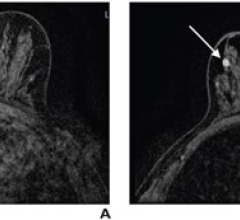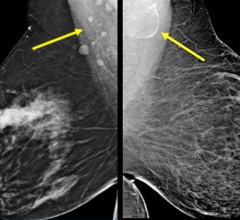
Example patient decision aid for transarterial radioembolization (TARE). Reproduced courtesy of the Interventional Initiative, a not-for-profit organization devoted to clinician and patient awareness, access, and advocacy related to minimally invasive image-guided procedures.
September 21, 2022 — According to ARRS’ American Journal of Roentgenology (AJR), incorporating patient decision aids (PDAs) into clinical workflows can enhance patients’ overall sense of empowerment after informed consent conversations for image-guided procedures—without requiring additional time or effort from radiologists.
Well-vetted plain-language PDAs provided before image-guided procedure consent conversations improve patients’ self-perceived understanding of the procedure and satisfaction with the conversation,” wrote corresponding author Eric J. Keller, MD, MA, from the division of interventional radiology at Stanford University in California.
Keller and colleagues’ prospective study comprised two controlled trials independently conducted at different academic medical centers: UC San Diego Health from August 2020–July 2021 (site A) and Stanford Health Care from January–October 2021 (site B). Patients were assigned systematically at site A. At site B, patients were randomly assigned to receive or not to receive a 2-page PDA before their visit. Vetted by diverse patient focus groups, and written at a 6–8th grade health literacy level, these PDAs described specific imaging procedures, as well as their benefits, risks, and alternatives. Patients completed a postvisit survey (site A: phone; site B: online) that assessed both their understanding of the procedure and their satisfaction with the consent conversation.
Ultimately, after an interventional radiology clinic visit to obtain informed consent for an image-guided procedure, patients who received a PDA before their visit reported significantly greater understanding of the procedure and its benefits, risks, and alternatives. Moreover, patients with PDAs were significantly more likely to feel that their clinician listened to them and answered questions appropriately.
“Though not assessed in the present study, an additional potential benefit of using PDAs is decreased medicolegal liability,” the authors of this AJR article contended.
For more information: www.arrs.org


 August 04, 2025
August 04, 2025 









